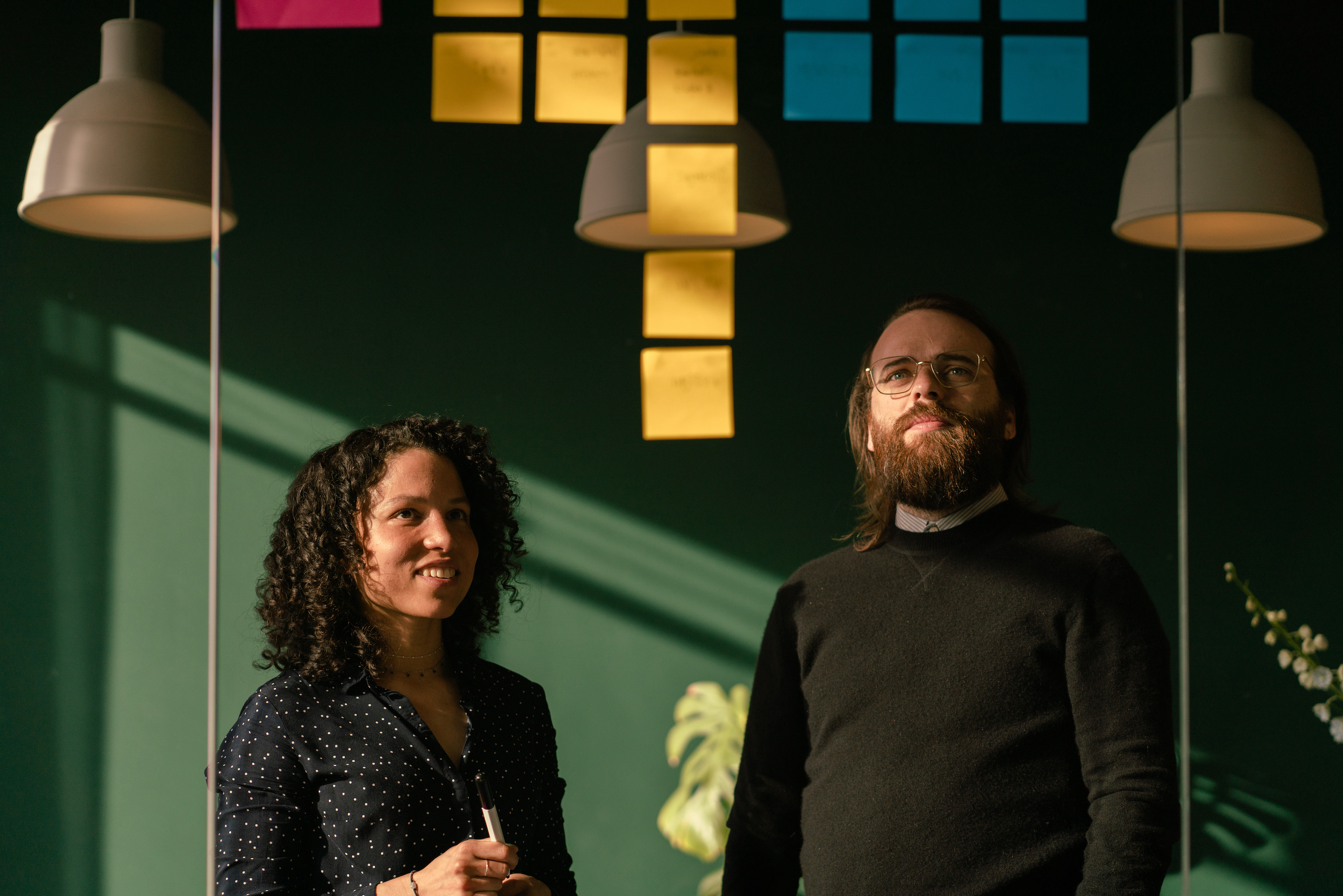Digital Producer Yira Rodriguez Garcia originally started out as a Project Manager, but in her new role, she solely focuses on creating a smooth digital process. We talk to her about the benefits of working with a multidisciplinary team, getting to the core of an issue, and why we should keep on iterating, iterating, iterating.
When did you start at Verve?
I met the Verve team at my previous job as a digital implementation consultant a few years ago. Back then, I worked with them to implement their designs for one of our cultural clients. It was always a warm contact, and I had even visited their studio a couple of times. After a while, they invited me for a coffee to talk about a job opportunity, and I thought: why not?
I initially started as a project manager, with a focus on digital projects. Now, I work as a digital producer. I originally studied communication and marketing and from my last job and I brought a lot of technical knowledge with me – so I can advise clients from both the marketing perspective and the technical perspective.
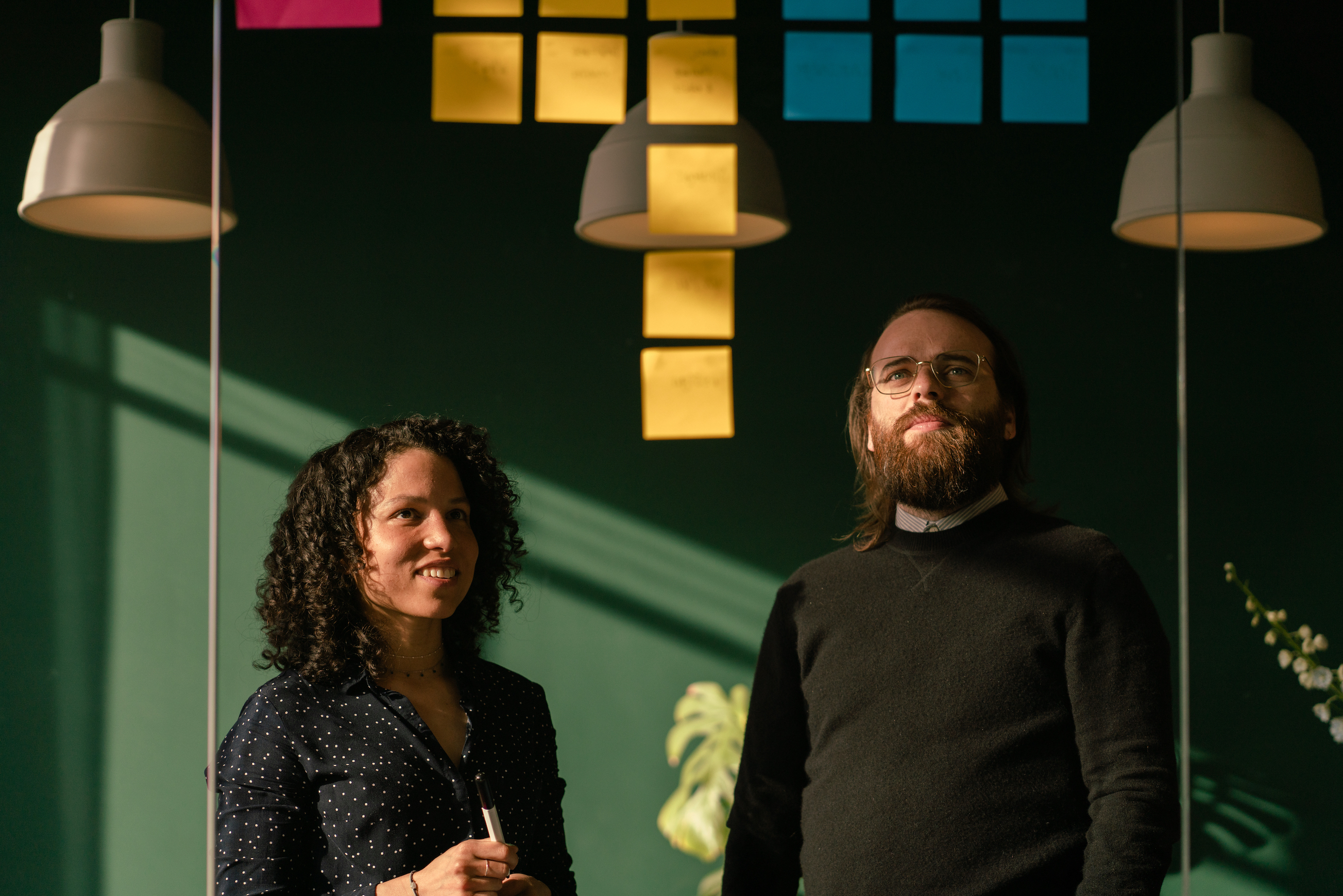
What’s that, a digital producer?
As a digital producer, I’m responsible for the product and I manage the scope of a digital project together with the project manager. I work together with the design and development team to make sure the right choices are made in the process. You could see me as a translator. I try to make things clear and logical for both our teams and our client.
Sometimes there are conflicting questions or answers. Together with the team, I weigh the different options and advise our client on their best option based on strategy, technical feasibility and their budget. As a product owner, I’m the one who ties the knot.
You could see me as a translator. I try to make things clear and logical for both our teams and our client.
What are some of your best practices when managing a digital project?
I think the role is more about experience and collaboration, than having all the knowledge yourself. When the client has questions, I ask myself: how can I find the core of their problem? And how can I push that back to the team in a way that they can make the right choices? As a digital producer, you’re not the UX designer who answers all the UX questions, or the developer who answers all the technical questions. I’m the one who keeps everyone on their toes by (laughs) mainly by asking everyone the difficult questions.
Sometimes, it can be as easy as asking: ‘What does this button do?’ A design idea can look pretty, but if it has no clear use, it’s not useful. With digital projects there is this holistic oneness: it has to be functional and aesthetic. So the hardest thing for my role as a digital producer is to find a way to tie everything together, and to dare to ask each other the hard questions too. It’s real teamwork. The answers to large questions are never just yes or no, we’re always exploring all options. What is the impact of every solution? How can we give the team member that’s working on a specific problem the right amount of inspiration and creative boost to take the next steps?
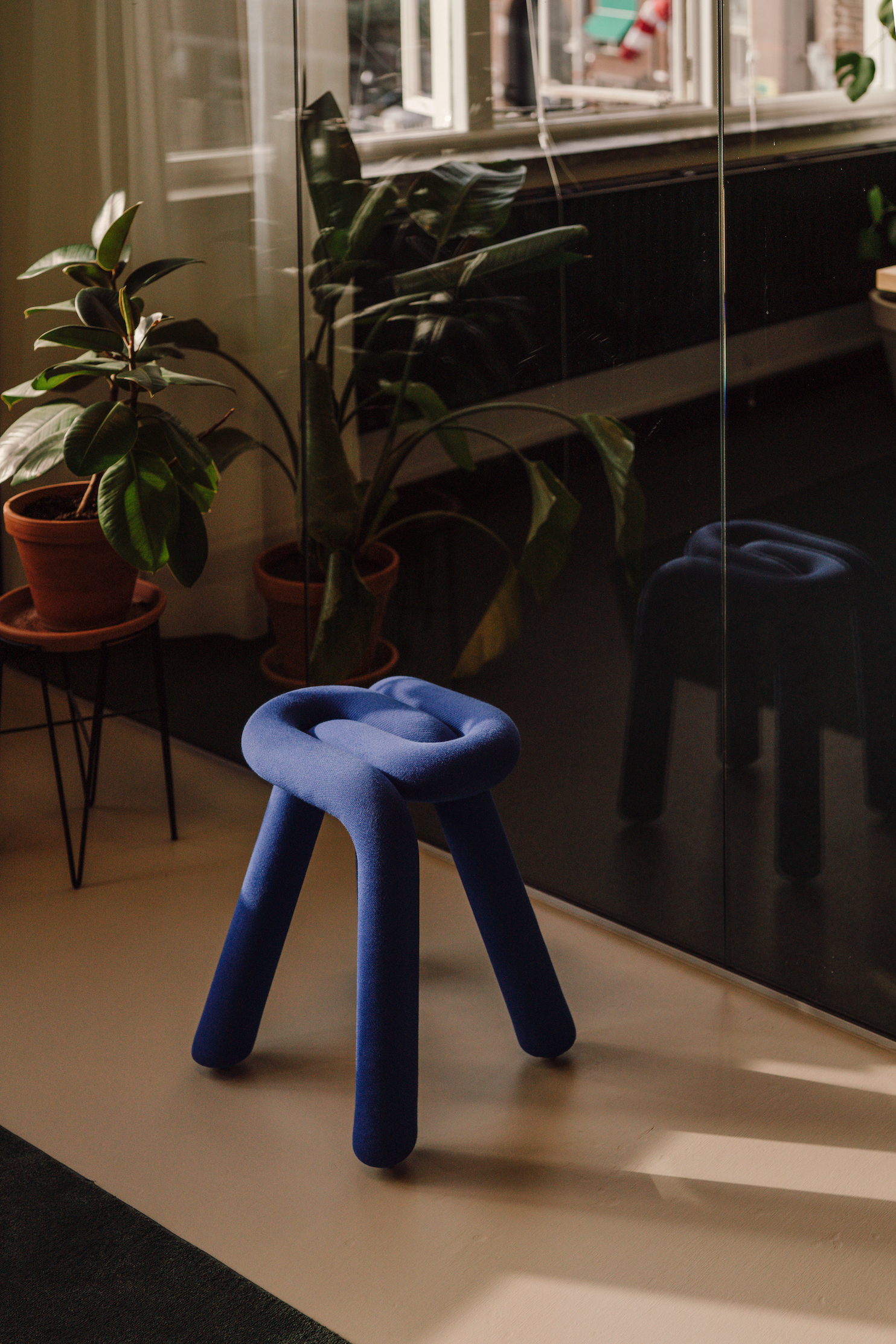
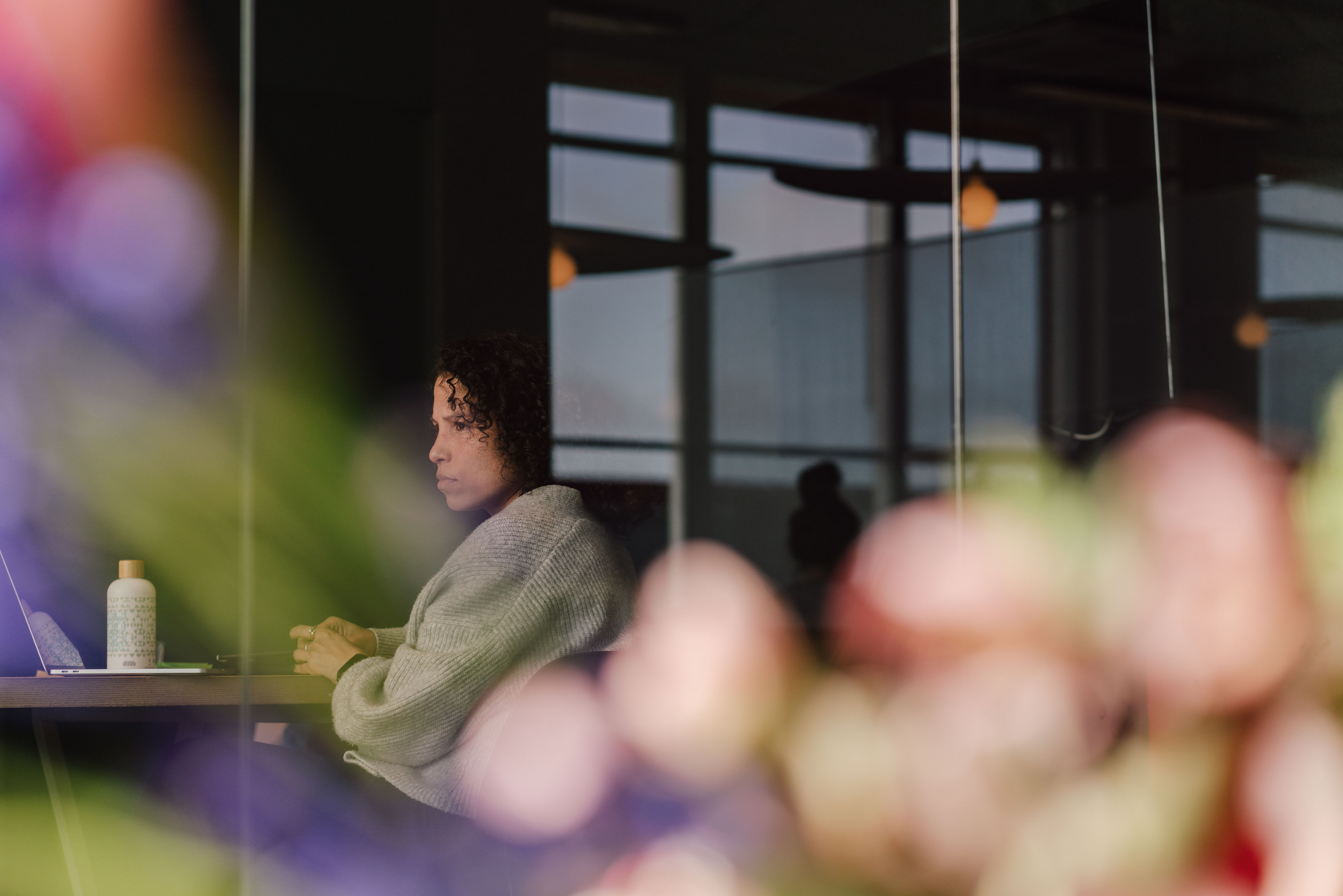
What does a typical digital process look like?
We use Scrum, a process that’s used by most developers and development agencies. That means we’re working with planning sprints and stand-ups. We thought a lot about the processes and implemented them together with the team. And we didn’t stop by just implementing a strategy, but we kept on iterating to make sure we had the best outcome for everyone. How we take on digital projects is a whole lot different now, than a few years ago.
Scrum works well for us because you continuously update both teams and clients on choices being made and progress. At the start of the process, it’s often unclear what the end result will be. Even when going live, there are still some changes necessary. This fits our philosophy: we don’t see going live as the finish line, we like to keep on iterating. The day after going live, is the day we start talking about the next steps. Because based on the analytics, you can make new decisions.
With digital projects there is this holistic oneness: it has to be functional and aesthetic.
What are the biggest challenges you face in a large scope digital project?
Websites are living objects. A website is never finished. The process is often longer – a couple of months, or even structurally. So there are continuously new ideas and new wishes that arise.
To maintain focus, I always look at the core business of the client. Say you have a festival or a theatre client. What’s their core business? It’s their event or ticket sales. So the pages that their website can’t do without are: their calendar and their ticket buttons. And if a client comes to us for a branding website, the website can’t do without the storytelling elements. That makes it a whole lot easier to make decisions, both internally and with the client. We always focus on core business, and the nice to haves are debatable.
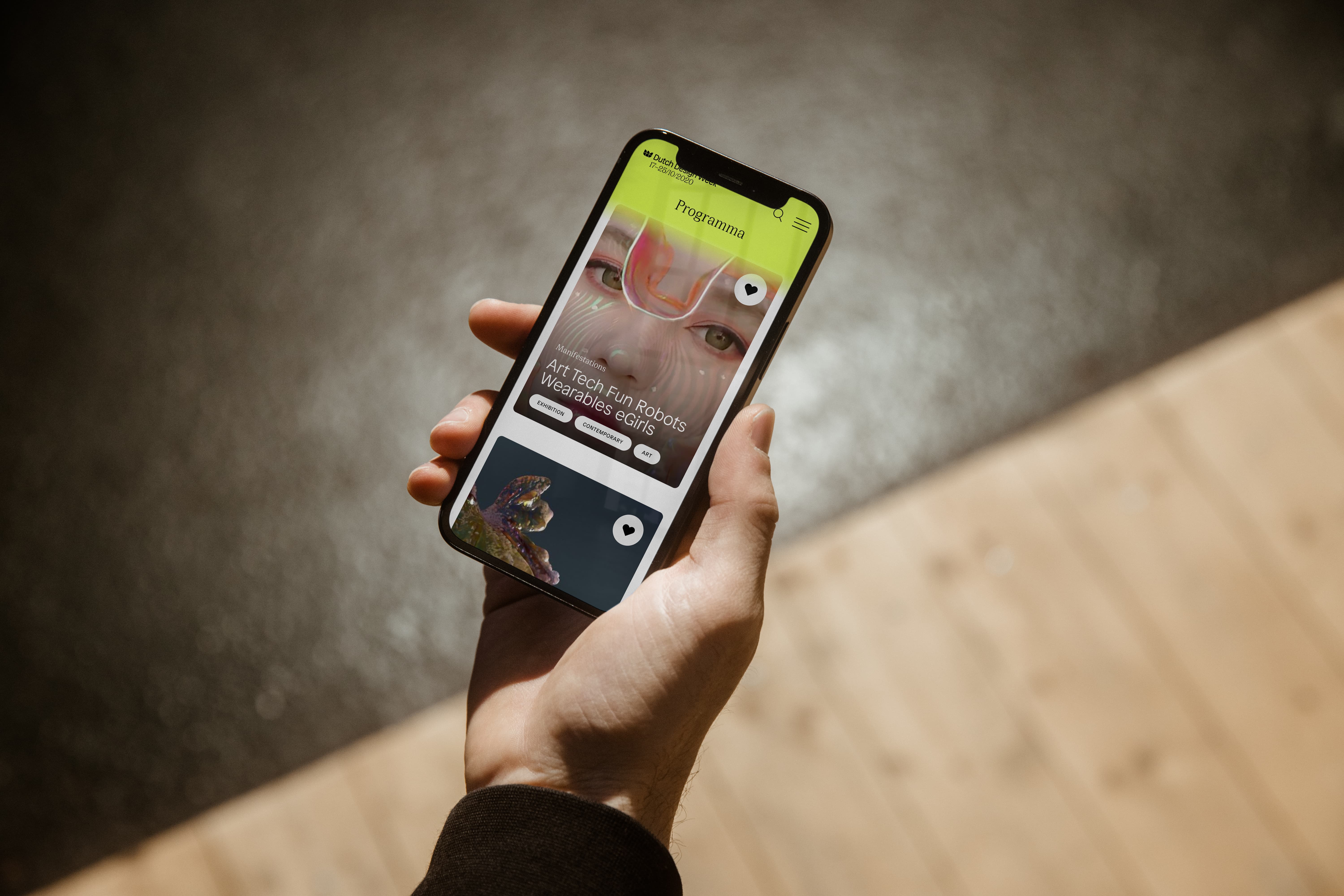
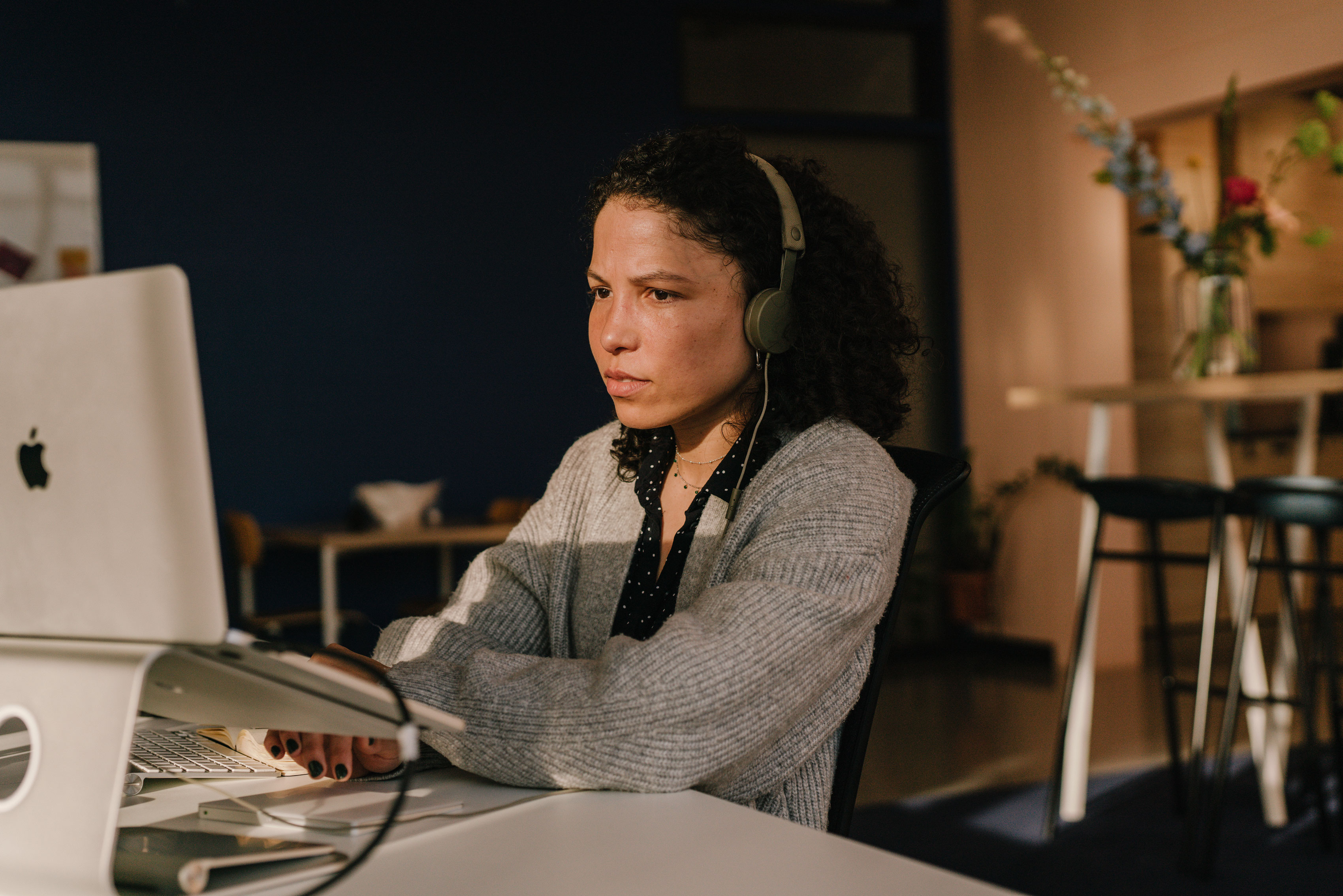
Which project are you proud of?
I’m especially proud of the platform we’re creating for Dutch Design Week. There’s not a Verve team and a Dutch Design Week team, but it’s truly a partnership. We create roadmaps, map out features together, and advise them on the best options. It’s all about collaboration and respecting each others vision. We focus on their core business and make decisions based on that. It’s a long-lasting relationship, that we built by being honest and keeping each other in the loop.
We always focus on core business, and the nice to haves are debatable.
With an ever-changing technical landscape, how do you stay up to date?
We all have a course budget, so we can do courses to learn new things. However, the team naturally loves what they do, and I guess you can say most people turned their hobby into their job.
We share a lot of knowledge with each other, things we learned ourselves. On Slack you often see messages like: ‘Hey did you know this?’. Personally, I try to make time to truly listen to our team. Being a digital producer takes having knowledge of digital processes and issues, but in the end, it’s also about being interested in the smallest code stuff, and getting enthusiastic about crossing something off the list. I often just look at what the team is doing, by sitting right next to them. That’s how you stay up to date.
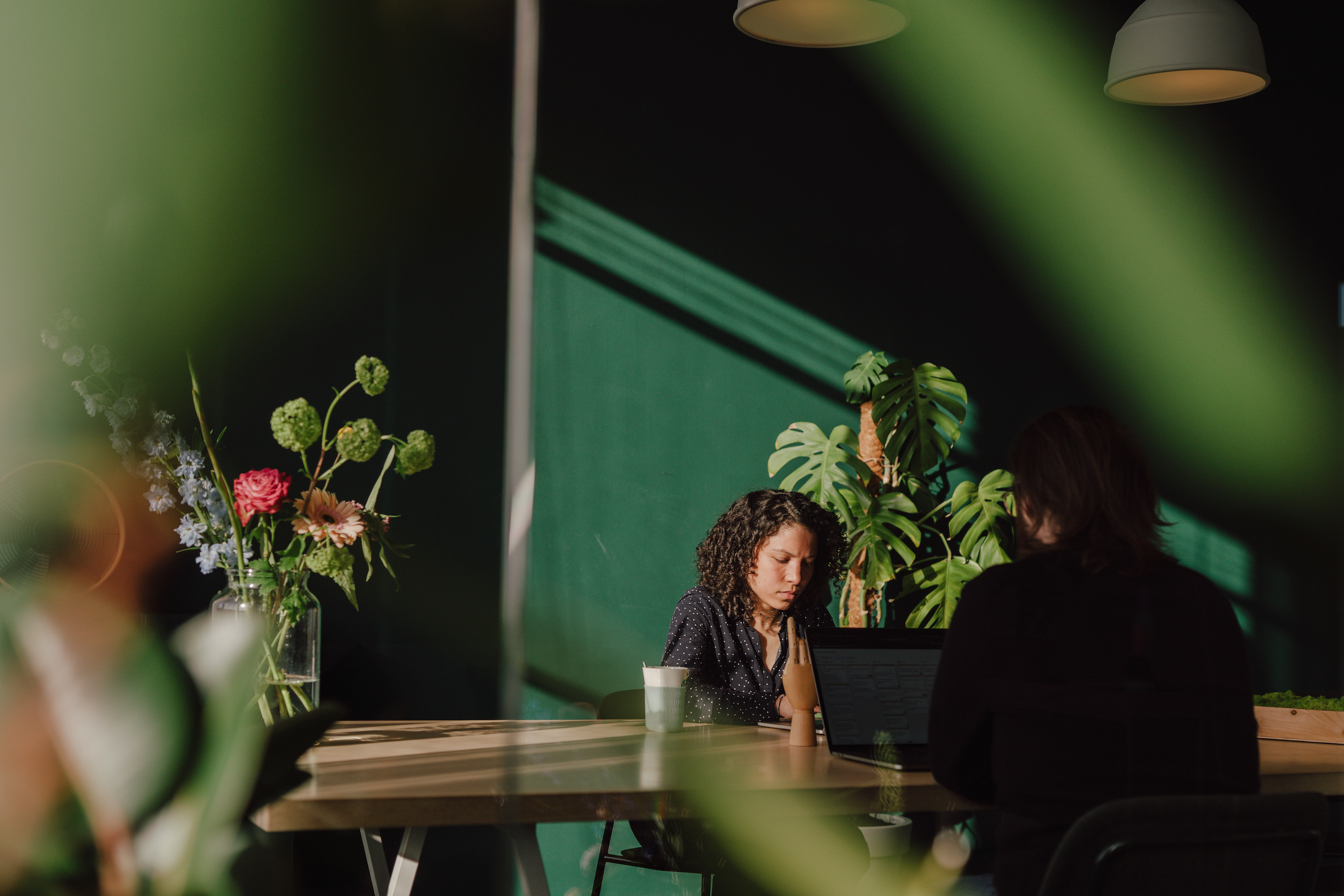
Do you see any important technical trends right now?
Right now, I think it’s all about being inclusive and finding your focus. In web development, it used to be: the more the more, the better the better. Now it’s less about quantity and more about quality. You should do one thing really well, rather than doing a lot of things okay. But standing out doesn’t mean your website should be full of blows and whistles. Just one thought-out feature is enough. It’s also what makes working with an agency so worthwhile: you get something unique and something that’s tailor-made for you. After all, it’s the most important communication channel to reflect who you are and what you stand for.
Next to that, inclusivity is important. A platform should be accessible for everyone, on a content level but also on a technical level. It has to work on all devices and not – for example – exclude Android or iPads. You have to be mindful about representation and accessibility: Is this website usable for people who are visually impaired? Are you making everyone feel valued?
A platform should be accessible for everyone, on a content level but also on a technical level.
Just as excited about design and technology as we are and ready to shake up the status quo? Come work at Verve
